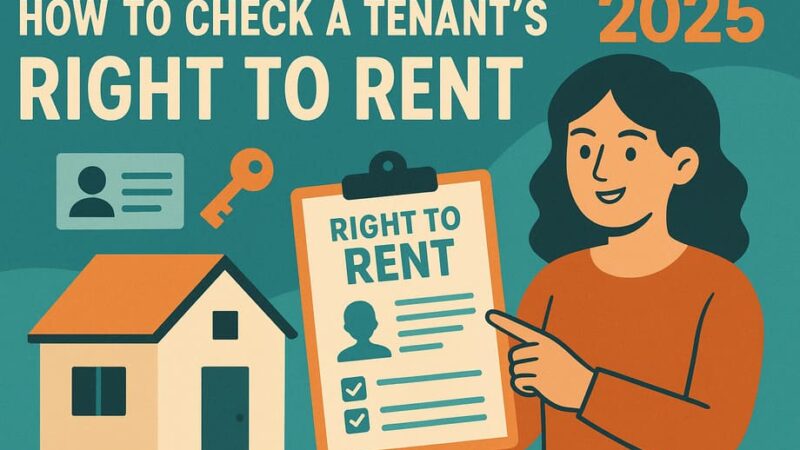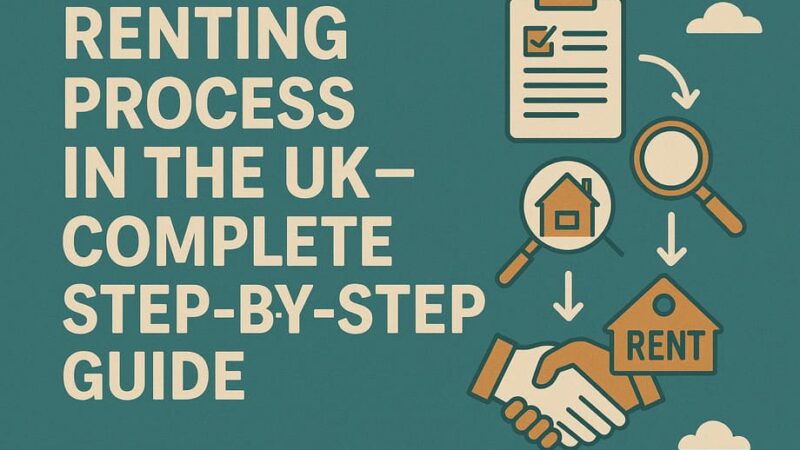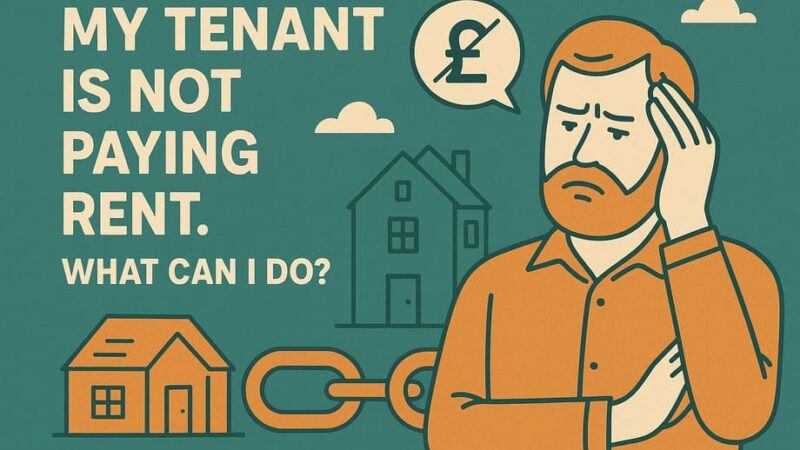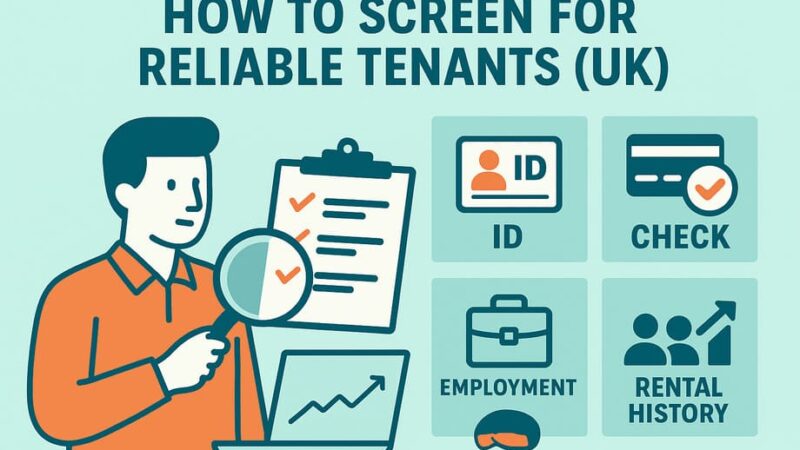Are Landlords Responsible For White Goods?
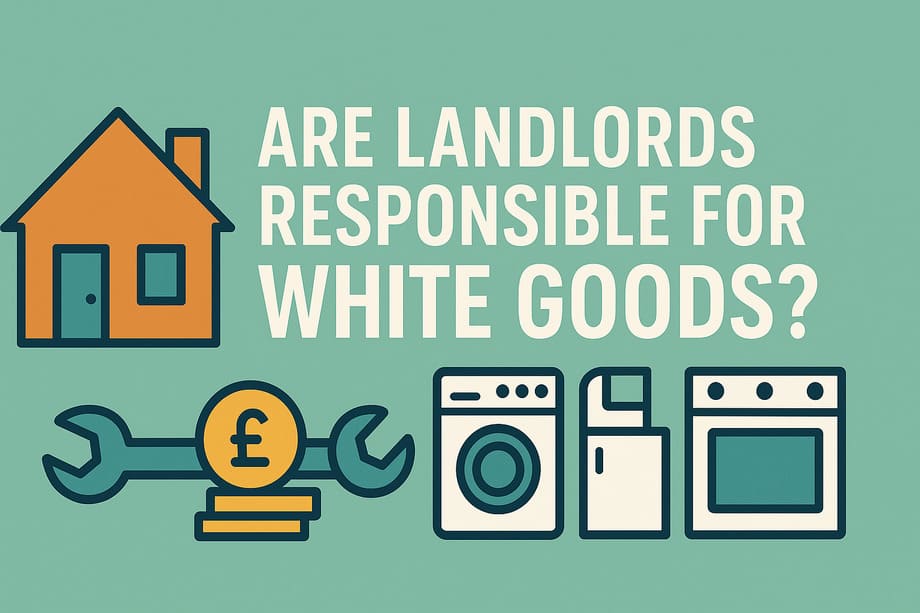
When you walk into a rental property and see a gleaming washing machine, fridge-freezer, and dishwasher, one question immediately comes to mind: who’s responsible if these break down? For both landlords and tenants, understanding white goods responsibilities is crucial to avoid disputes, unexpected costs, and strained relationships.
The majority of landlords provide white goods and appliances in their rental homes. It makes life easier for their tenants and makes their rental property an attractive place for a potential tenant to call home. But this convenience comes with questions about maintenance, repairs, and legal obligations.
The reality is more complex than many assume. While landlords aren’t legally required to provide most appliances, once they do, a web of responsibilities emerges that depends on tenancy agreements, appliance ownership, and the cause of any breakdown.
Whether you’re a landlord wondering what white goods to provide and maintain, or a tenant trying to understand your rights when the washing machine stops working, this guide explains everything you need to know about white goods responsibilities in UK rental properties.
What Are White Goods Responsibilities in Rental Properties?
White goods responsibilities in rental properties refer to the obligations both landlords and tenants have regarding large household appliances. But first, let’s clarify what we’re talking about.
“White goods” refer to essential large electrical appliances found in households. These are essential appliances such as refrigerators, washing machines, dishwashers, and cookers. The name comes from the fact that these items were traditionally made with a white enamel coating, they were given the name ‘white goods’ – even though most of them can now be purchased in other colours or stainless steel!
Common white goods include:
- Washing machines and tumble dryers
- Fridge-freezers and refrigerators
- Dishwashers
- Cookers, hobs, and ovens
- Microwaves (though sometimes classified separately)
Key responsibility framework: From a legal standpoint, a landlord bears the responsibility of ensuring that all appliances they supply are in proper working condition. However, landlords in the UK are not obliged to provide most appliances – such as fridges, freezers and washing machines – to their tenants.
The critical distinction: The responsibility for maintaining and repairing white goods in a UK rental property depends on the tenancy agreement terms and the specific circumstances surrounding a breakdown. While landlords are not legally obligated unless agreed upon, many choose to take on this responsibility to ensure tenant safety and satisfaction.
Understanding these responsibilities prevents disputes and ensures both parties know their obligations from day one.
Landlord Legal Obligations vs Tenant Rights
What Are Landlord Legal Obligations for White Goods?
Landlord legal obligations for white goods are surprisingly limited under UK law, but they become more extensive once appliances are provided.
Minimum Legal Requirements: By law, you must provide the most basic of white goods. Even in ‘unfurnished’ properties, landlords are obliged by law to provide tenants with ‘adequate cooking facilities’. Under the Landlord and Tenant Act 1985, all rental properties must be equipped with “facilities for the preparation and cooking of food”, meaning most landlords will provide some sort of cooker or oven as standard.
Safety Obligations:
Any electrical appliances that are supplied by the landlord must be safe pursuant to the Electrical Equipment (Safety) Regulations 1994. Additionally, the Electrical Safety Standards in the Private Rented Sector Regulations 2020 require landlords to have a qualified person inspect and test every fixed electrical installation at least once every five years.
When Landlords Must Maintain White Goods:
- A landlord is legally responsible for the repairs or replacement of electrical white goods supplied with their rental property as part of contract law
- If the white goods in question have been supplied by the landlord and are listed in the inventory, it will typically be their responsibility to arrange the necessary repairs
- Where appliances are included, the landlord is required to keep them in good working order
No Statutory Repair Duty: Section 11 of the Landlord and Tenant Act sets out a landlord’s repairing obligations, but White Goods are not mentioned and so a landlord is not responsible for repairing any White Goods supplied to a tenant under Section 11. This is because appliances fall under “fixtures, fittings and appliances for making use of the supply of water, gas or electricity” which are specifically excluded.
What Are Tenant Rights Regarding White Goods?
Tenant rights regarding white goods center around safe usage and reasonable expectations when appliances are provided by landlords.
When Tenants Can Expect Landlord Repairs:
- If appliances were provided by the landlord and listed in the property inventory
- When breakdown occurs due to normal wear and tear, not tenant misuse
- If the tenancy agreement specifically states landlord responsibility for appliance maintenance
- When appliances pose safety risks or prevent basic living functions
Tenant Responsibilities: Tenants are generally responsible for the everyday maintenance and proper use of white goods and appliances provided in the rental property. This includes following the manufacturer’s instructions and not misusing the appliances, reporting any faults or breakdowns due to normal wear and tear to the landlord or property manager promptly.
When Tenants Are Responsible: The tenant may be liable for repair or replacement costs under certain conditions: if the tenant, household members, or guests caused damage through misuse or negligence, if the tenant brought their own appliances into the property (they are responsible for maintaining those).
Reporting Requirements: If the appliance was supplied by the landlord, the tenant will need to document the issue, taking photos if necessary, before notifying the landlord or their letting agent of the problem.
Are Landlords Required to Provide Appliances in the UK?
Legal Requirements vs Market Expectations
Strict Legal Requirements: No, landlords don’t have to provide most white goods in their rental properties. The only legal requirement is providing “adequate cooking facilities” – this means providing an oven, hob, or cooker. A freestanding microwave alone will not meet the ‘adequate cooking facilities’ requirement.
Market Reality: Despite it not being legally required, it is common practice for most landlords to provide white goods, especially if the property is listed as furnished. The majority of rental properties are let with white goods in place, even if they’re advertised as ‘unfurnished’.
Business Case for Providing Appliances: Providing a property to rent with no white goods could appeal to tenants who are moving from a home they owned and wish to bring their own appliances with them. However, other tenants could be put off by a property that comes with no white goods, so for broad appeal, it’s usually best for landlords to supply them.
Standard Appliances Expected in Rentals
Basic Amenities: Landlords providing white goods in their rental properties should include what might be considered ‘basic amenities’ like a fridge, freezer and washing machine.
Common Expectations: Certain white goods are an unspoken necessity in rentals in the UK. For example, most rental properties will already have at least a refrigerator and freezer in place. Having additional appliances, such as a dishwasher and microwave, can make your rental property even more appealing.
Furnished vs Unfurnished Properties: While there is no universal definition for what constitutes a furnished property, the expectation is that this will include all the essential appliances. However, just because you’ve supplied a washing machine and fridge, this doesn’t mean the property can now be advertised as furnished. Furnished properties usually include all the basic furniture a tenant requires.
Property Type Considerations
Student Accommodation: Most student accommodation is fully furnished with both white and brown goods, as it’s very uncommon for students living away from home for the first time to already own these items.
Professional Rentals: Single professionals might have different requirements from families, affecting which appliances are most valuable to provide.
HMO Properties: Houses in Multiple Occupation may have additional requirements, especially regarding shared kitchen facilities and washing machines.
What White Goods Should Be Included in Rental Properties?
Essential White Goods for Maximum Appeal
The Core Three: Based on market research and tenant expectations, three main appliances are expected in any tenancy: a fridge-freezer, an oven with a hob and a washing machine.
High-Impact Appliances:
- Washing machine: Similarly, having a washing machine is incredibly appealing for tenants due to the high prices and inconvenience of using a laundrette
- Fridge-freezer: Essential for food storage and safety
- Cooker/oven with hob: Legally required cooking facilities
- Dishwasher: Can significantly increase rental appeal and allow higher rents
Quality vs Cost Considerations
Investment Strategy: All investments in rental properties are decisions of cost against quality. A cheap fridge, for instance, is a smaller up-front cost, but it may need replacing sooner than a more expensive option.
Professional Advice: For advice on white goods to purchase for your rental property, speak to your local agent, whose experience of the rental market can help you make those key decisions.
Tenant-Focused Selection: Always think about the needs of your tenants when it comes to white goods. For example, a single professional renting a one-bedroom flat will have very different requirements to a family of four when it comes to items like fridge-freezers.
Value Proposition: The more you invest in your white goods, the fewer maintenance costs you’ll face. Additionally, having high-quality white goods in your rental will attract tenants who are willing to pay a bit more to have a nice living space with high-quality appliances.
Property-Specific Recommendations
One-Bedroom Properties:
- Compact but efficient fridge-freezer
- Slim-line dishwasher (optional but valuable)
- Standard washing machine
- Basic but reliable cooker
Family Properties:
- Large capacity fridge-freezer
- Full-size dishwasher
- Large capacity washing machine
- Range cooker or separate oven and hob
Shared Properties/HMOs:
- Commercial-grade or heavy-duty appliances
- Multiple smaller fridges vs one large unit
- Industrial washing machines where permitted
- Easy-to-clean surfaces and simple controls
How Much Should I Budget for White Goods Maintenance?
Annual Maintenance Costs
Typical Repair Expenses: Based on industry data, landlords should budget approximately 1-3% of the appliance’s purchase price annually for maintenance and repairs.
Average costs by appliance type:
- Washing machine repairs: £80-250
- Fridge-freezer repairs: £100-300
- Dishwasher repairs: £75-200
- Cooker/oven repairs: £60-180
- Emergency call-out fees: £50-100
Replacement vs Repair Decisions
When to Repair:
- Appliance is less than 5 years old
- Repair cost is under 50% of replacement cost
- Parts are readily available
- Good repair history
When to Replace:
- Appliance is over 8-10 years old
- Repair costs exceed 60% of replacement value
- Multiple previous repairs
- Energy efficiency improvements available
Upgrade Opportunities: If you do choose to supply any electrical white or brown goods, you are responsible for ensuring they are safe and conform to the Electrical Equipment (Safety) Regulations 1994. Sometimes replacement offers opportunities for energy efficiency improvements.
Preventive Maintenance Strategies
Professional PAT Testing: It’s best practice to arrange regular PAT testing of supplied electrical appliances. While this is not normally a legal requirement in England and Wales, PAT testing is a legal requirement for Houses of Multiple Occupation (HMOs) and rental properties in Scotland.
Warranty Protection: New goods may have been supplied with a warranty or guarantee and certainly a landlord can rely on these. Extended warranties are also a great way for landlords to protect themselves against costs associated with replacing white goods if they break down.
Insurance Options: Insurance tailored specifically for landlords is gaining immense popularity, covering everything from boilers to household appliances. For a small monthly fee, many companies offer appliance protection plans to offer peace of mind.
Who Fixes the Washing Machine: Landlord or Tenant?
Legal Framework for Washing Machine Repairs
The Legal Position: The Landlord and Tenant Act 1985 states that the landlord is responsible for installations for the supply of water, gas and electricity and for sanitation, but not fixtures, fittings and appliances for making use of water, gas or electricity.
Practical Reality: If you ask most tenants or landlords they’ll tell you that if the property is let with white goods, the landlord’s responsibility includes keeping them in good repair. As we’re about to see, that’s nearly but not quite true.
Professional Opinion: If the washing machine is broken and the tenant did not cause the damage, the landlord is responsible for covering the repair costs, assuming the landlord provided the washing machine originally.
Determining Responsibility
Landlord Responsibility When:
- The washing machine was provided by the landlord and listed in inventory
- Breakdown is due to normal wear and tear or mechanical failure
- The appliance poses safety risks
- Tenancy agreement specifies landlord maintenance duties
Tenant Responsibility When:
- They brought their own washing machine to the property
- Damage resulted from misuse, overloading, or negligence
- They failed to follow manufacturer’s instructions
- The tenancy agreement specifically assigns appliance maintenance to tenants
Grey Area Situations: Most tenancy agreements highlight the responsibilities of the tenant to treat the property and fixtures or fittings within it with due and reasonable care. If your six month old appliance stops working because you’ve overloaded it, failed to allow access for servicing, or otherwise used the item in an unreasonable manner, tenant responsibility may apply.
Professional Assessment
Determining Cause: A washing machine repair technician should be able to provide a clear explanation of the issue. They should be able to determine if the problem was caused by overloading or another issue attributable to the tenant.
Age Considerations: If the machine is 20 years old, it is likely not the tenant’s fault. Conversely, if it is a brand new machine that the tenant damaged through misuse, it probably is their responsibility.
Documentation Importance: The other issue is that most landlords would prefer to ensure that repairs are done properly. A badly repaired electrical appliance could pose a fire or other safety risk.
Common Disputes and How to Avoid Them
Misuse vs Normal Wear and Tear
Defining Normal Wear: Maintaining appliances in good working order includes tasks like defrosting the refrigerator occasionally, ensuring food stains do not accumulate, and cleaning out the lint trap in the dryer.
Tenant Misuse Examples:
- Consistently overloading washing machines
- Using inappropriate detergents or cleaning products
- Failing to perform basic maintenance like cleaning filters
- Physical damage from moving appliances incorrectly
Professional Assessment: The challenge often lies in determining whether appliance failure is due to normal wear and tear or tenant misuse. Professional repair assessments can help establish the cause of breakdown.
Contract Clarity Issues
Common Problems: Most people will automatically assume that whoever supplies the appliances is responsible for repairing them. While that makes most sense, it’s not always the case, especially if the tenancy agreement has no explicit clauses on the matter.
Prevention Strategies: It’s essential that you clearly communicate with tenants during property viewings and within the tenancy agreement which white and brown goods are included and which are not.
Detailed Agreements: So, if you are supplying white or brown goods, you should specify within the tenancy agreement who is responsible for repairing or replacing them if they go wrong to provide both parties with clarity about their responsibilities.
Maintenance Expectations
Landlord Best Practices: Where White Goods have been supplied by the Landlord we recommend that they carry out any necessary repairs. However, should landlords wish to transfer the responsibility to tenants they will need to ensure that they include a comprehensive provision within the tenancy agreement.
Tenant Understanding: This provision should then be brought to the tenant’s attention prior to the commencement of the tenancy so that it does not come as a complete surprise to the tenant at a later date.
Emergency vs Routine Repairs
Urgent Situations:
- Safety hazards from electrical faults
- Complete loss of cooking facilities
- Washing machine flooding
- Refrigeration failure causing food safety issues
Standard Maintenance:
- Reduced appliance efficiency
- Minor component replacements
- Routine servicing requirements
- Cosmetic issues not affecting function
Insurance and Protection Options
Landlord Insurance Coverage
Standard Building Insurance: Landlord building insurance or tenants contents insurance will pay out for unintentional or unexpected damage to an appliance, such as if the property is flooded and the appliances no longer work. It won’t cover routine wear and tear or malicious damage.
Specialist Appliance Insurance: For landlords using a managing agent, it’s important to provide them with details of any warranties so they don’t instruct contractors unnecessarily.
Contents Insurance for White Goods: By law, you must provide the most basic of white goods… Are you a landlord who has chosen to furnish your rental property with an array of white goods? In that case, it’s advised that you take out specialist landlord insurance as backup or you could find yourself out of pocket.
Warranty Management
Manufacturer Warranties: It is also advised that landlords provide tenants with an operating manual for each appliance so they know how to use them properly and to avoid any claims being rejected as a result of misuse.
Extended Warranty Options: Extended warranties can provide longer-term protection but should be evaluated based on appliance age, cost, and likelihood of use.
Professional Service Contracts: Some companies offer comprehensive service contracts covering multiple appliances across rental portfolios.
Tenant Insurance Considerations
Contents Insurance: Tenants contents insurance would cover your own white goods, as well as your liability for damage to items belonging to the landlord.
Appliance Coverage: If a tenant purchases their own white goods and brings them into the property independently, then it will be their responsibility to repair and maintain them.
Regional and Legal Variations
England, Wales, Scotland, and Northern Ireland
Welsh Regulations: In Wales, the rules around what landlords must supply are set out in specific Welsh housing regulations, which may differ from English requirements.
Scottish Requirements: PAT testing is a legal requirement for rental properties in Scotland under The Housing (Scotland) Act 2014, whereas it’s optional in England and Wales.
Northern Irish Standards: Different standards may apply in Northern Ireland, requiring landlords to check local regulations.
HMO-Specific Requirements
Shared Facilities: HMO properties often require higher standards for shared appliances, including commercial-grade equipment where appropriate.
Additional Safety Requirements: Enhanced fire safety and electrical safety requirements often apply to HMOs, affecting appliance installation and maintenance.
Local Authority Variations
Licensing Requirements: Some local authorities have specific requirements for white goods in licensed rental properties.
Inspection Standards: Different councils may have varying standards during property inspections regarding appliance quality and safety.
Professional Services and Support
When to Use Professional Repair Services
Quality Assurance: It will then be up to the landlord to arrange the necessary expert repairs – attempting a DIY repair may void the warranty.
Safety Considerations: Professional repairs ensure safety compliance and proper installation, reducing liability risks for landlords.
Efficiency Benefits: Professional appliance repair services are available with same day, weekend and evening appointments, so an appliance breakdown doesn’t have to be a disaster.
Managing Multiple Properties
Service Contracts: Landlords with multiple properties can benefit from service contracts with appliance repair companies offering preferential rates.
Preventive Maintenance Programs: Regular servicing schedules can prevent emergency breakdowns and extend appliance life.
Inventory Management: Professional property management can include appliance tracking, warranty management, and scheduled maintenance.
Emergency Response Planning
24/7 Support Services: Some companies offer emergency repair services for essential appliances like fridges and washing machines.
Tenant Communication: Clear procedures for reporting appliance problems help ensure prompt resolution and prevent small issues becoming major problems.
Frequently Asked Questions
Are landlords legally required to provide white goods in the UK?
No, except for cooking facilities (oven and hob). However, most landlords provide basic white goods to make properties more attractive and competitive in the rental market.
Who pays for washing machine repairs – landlord or tenant?
If the landlord provided the washing machine and it breaks due to normal wear and tear, the landlord pays. If the tenant brought their own or caused damage through misuse, the tenant pays.
What are white goods in rental properties?
White goods are large electrical appliances like washing machines, fridge-freezers, dishwashers, and cookers. They’re called “white goods” because they were traditionally white, though now come in many colors.
Can landlords charge tenants for appliance repairs?
Only if the tenant caused damage through misuse or negligence, or if the tenancy agreement specifically assigns appliance maintenance to tenants. Normal wear and tear is the landlord’s responsibility.
Do landlords have to replace old white goods?
If landlords provided the appliances and they fail due to age or normal wear, they typically must replace them. However, this depends on the tenancy agreement terms and whether replacement is more cost-effective than repair.
What happens if white goods break down during tenancy?
Tenants should immediately report the issue to their landlord with photos and description. The landlord should arrange professional assessment and repair within reasonable timeframes for essential appliances.
Conclusion
Understanding white goods responsibilities doesn’t have to be complicated, but it requires clear agreements, proper documentation, and good communication between landlords and tenants.
Remember:
For Landlords:
- You’re not legally required to provide most appliances, but doing so makes properties more attractive
- Once you provide appliances, you’re generally responsible for maintaining them in safe working order
- Clear tenancy agreements prevent disputes about repair responsibilities
- Quality appliances reduce long-term maintenance costs and tenant complaints
For Tenants:
- Check your tenancy agreement to understand what appliances are provided and who maintains them
- Report appliance problems immediately to prevent escalation
- Use appliances according to manufacturer instructions to avoid liability for damage
- Don’t attempt repairs on landlord-provided appliances – this could void warranties
For Everyone:
- Document appliance condition at move-in and move-out
- Keep records of all maintenance requests and responses
- Professional repair services protect safety and preserve warranties
- Good relationships benefit everyone when problems arise
The key principle: The responsibility for maintaining and repairing white goods in a UK rental property depends on the tenancy agreement terms and the specific circumstances surrounding a breakdown. While landlords are not legally obligated unless agreed upon, many choose to take on this responsibility to ensure tenant safety and satisfaction.
Whether you’re deciding what appliances to provide or dealing with a breakdown, success comes from understanding your specific obligations, maintaining clear documentation, and working with professional services when needed. When done right, white goods enhance rental properties and create positive experiences for everyone involved.
This guide covers general principles, but specific responsibilities vary based on tenancy agreements and local circumstances. Always refer to your tenancy agreement and seek professional advice for complex situations.
Last Updated on August 27, 2025 by James Cartwright


